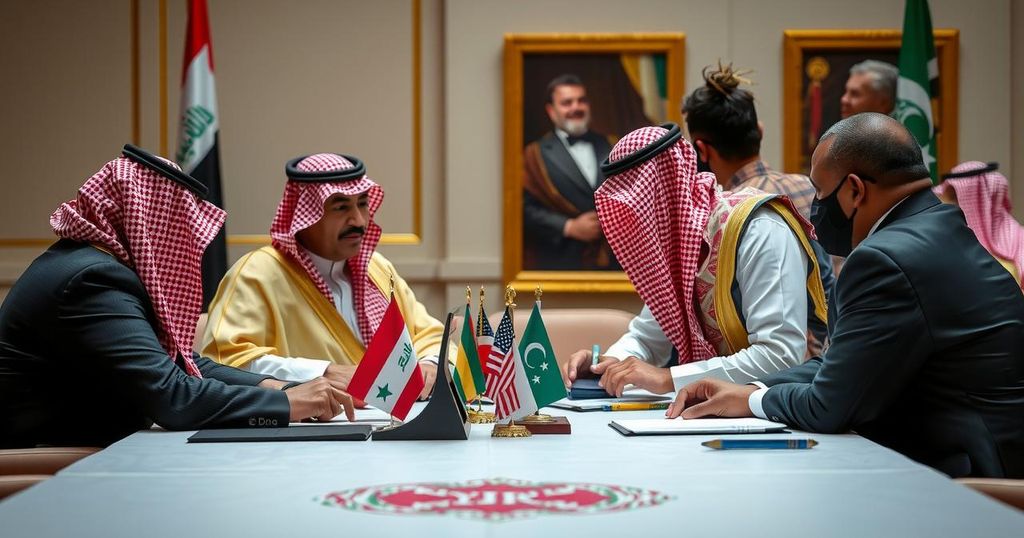Saudi Arabia has called for the lifting of sanctions on Syria, highlighting their detrimental effects on the country’s reconstruction and development. In Riyadh discussions with diplomats from Europe and West Asia, Saudi officials expressed the need for humanitarian support. While the U.S. and EU contemplate easing restrictions contingent on Syria forming an inclusive government, the regional dynamics remain complex following the recent change in leadership in Syria.
On January 12, 2025, Saudi Arabia urged the removal of sanctions imposed on Syria, during discussions with diplomats from various nations, including those from the European Union and West Asia. Saudi Arabia’s Foreign Minister, Prince Faisal bin Farhan, emphasized that ongoing sanctions impede the Syrian people’s aspirations for development and recovery. Alongside Arab officials, representatives from Turkey, France, the EU, and the United Nations participated in the Riyadh talks, which also focused on Syria’s future following the recent overthrow of Bashar al-Assad by Islamist-led forces.
The newly appointed leader of Syria, Mohamed al-Jolani, and his administration seek sanctions alleviation as part of their reconstruction efforts. Historic sanctions levied by Western nations, including the United States, stem from the brutal civil war that began in 2011 and have led to significant humanitarian crises within the country. Recent comments from U.S. officials indicate a cautious approach towards easing restrictions based on visible progress in Syria.
The backdrop to Saudi Arabia’s current diplomatic endeavors regarding Syria involves a complex political landscape following over a decade of civil strife. Since the start of the conflict in 2011, more than half a million Syrians have died, and countless others have been displaced. The sanctions against Syria were primarily initiated in response to the regime’s oppressive tactics against dissent. As efforts to rebuild the war-torn nation gain momentum, regional powers like Saudi Arabia are seeking to redefine their roles and influence over Syria’s political trajectory.
In conclusion, Saudi Arabia’s call for sanctions relief reflects its desire to play a pivotal role in Syria’s recovery process while also navigating a complicated diplomatic terrain laden with historical grievances. Facilitating humanitarian aid and fostering development in post-conflict Syria remain critical objectives, even as international relations and previous sanctions pose significant challenges. The efficacy of Saudi Arabia’s approach will ultimately depend on both the stabilization of Syria and the response from international stakeholders.
Original Source: www.thehindu.com






